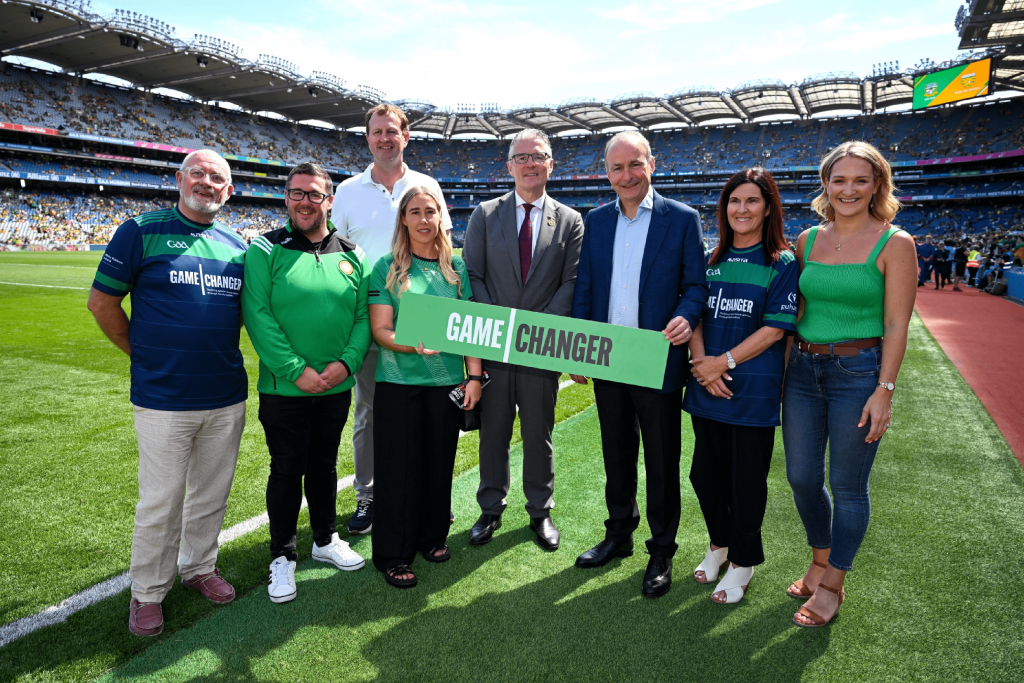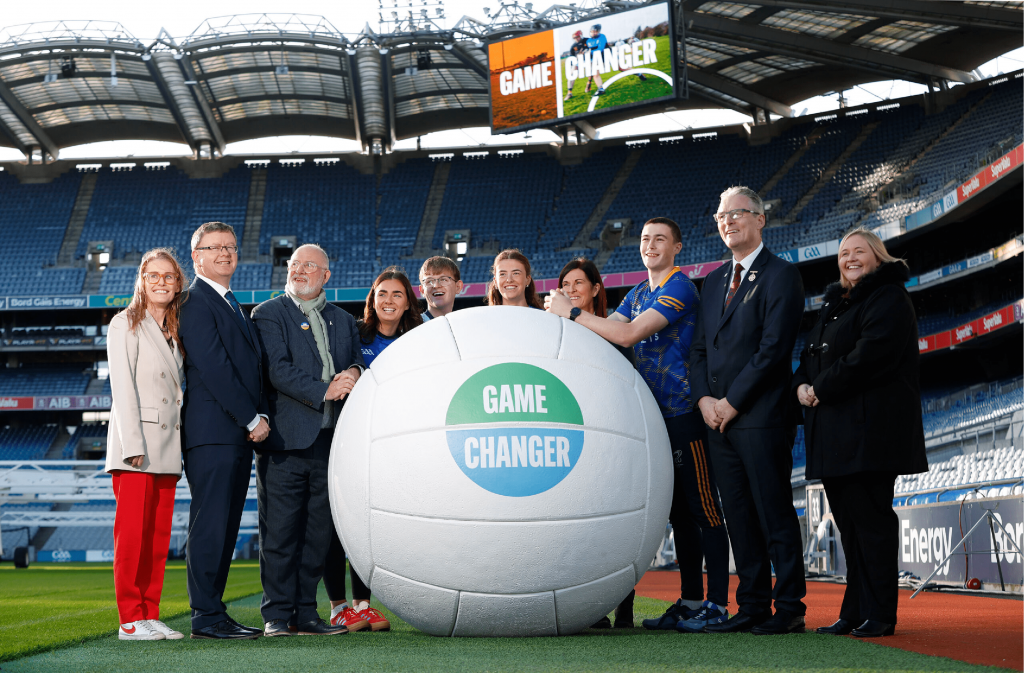Game Changer
Ashling Murphy was an Irish primary school teacher, traditional Irish musician, and camogie player who was murdered in January 2022 while walking on the towpath of the Grand Canal at Cappincur, outside Tullamore, County Offaly. The shockwaves around Ireland resulted in individuals and community organisations expressing the wish to tackle violence against women in a meaningful way. Local GAA clubs asked White Ribbon to help and in 2024, Ruhama, GAA and White Ribbon Ireland, supported by the LGFA and Camogie Associations commissioned Language to create a campaign to combat men’s violence against women.
Research
Language conducted polling that showed the vast majority of people in Ireland are aware of and opposed to violence against women and girls. Also, they would like to see sporting organisations address men’s violence against women:
- 85% public agree gender-based discrimination has a negative effect on women’s performance. (90% GAA people)
- 94% public agree clubs and facilities should be safe spaces, free of gender-based harassment or intimidation
- 89% agree sporting bodies have an important role combating gender-based inequality and violence in society.
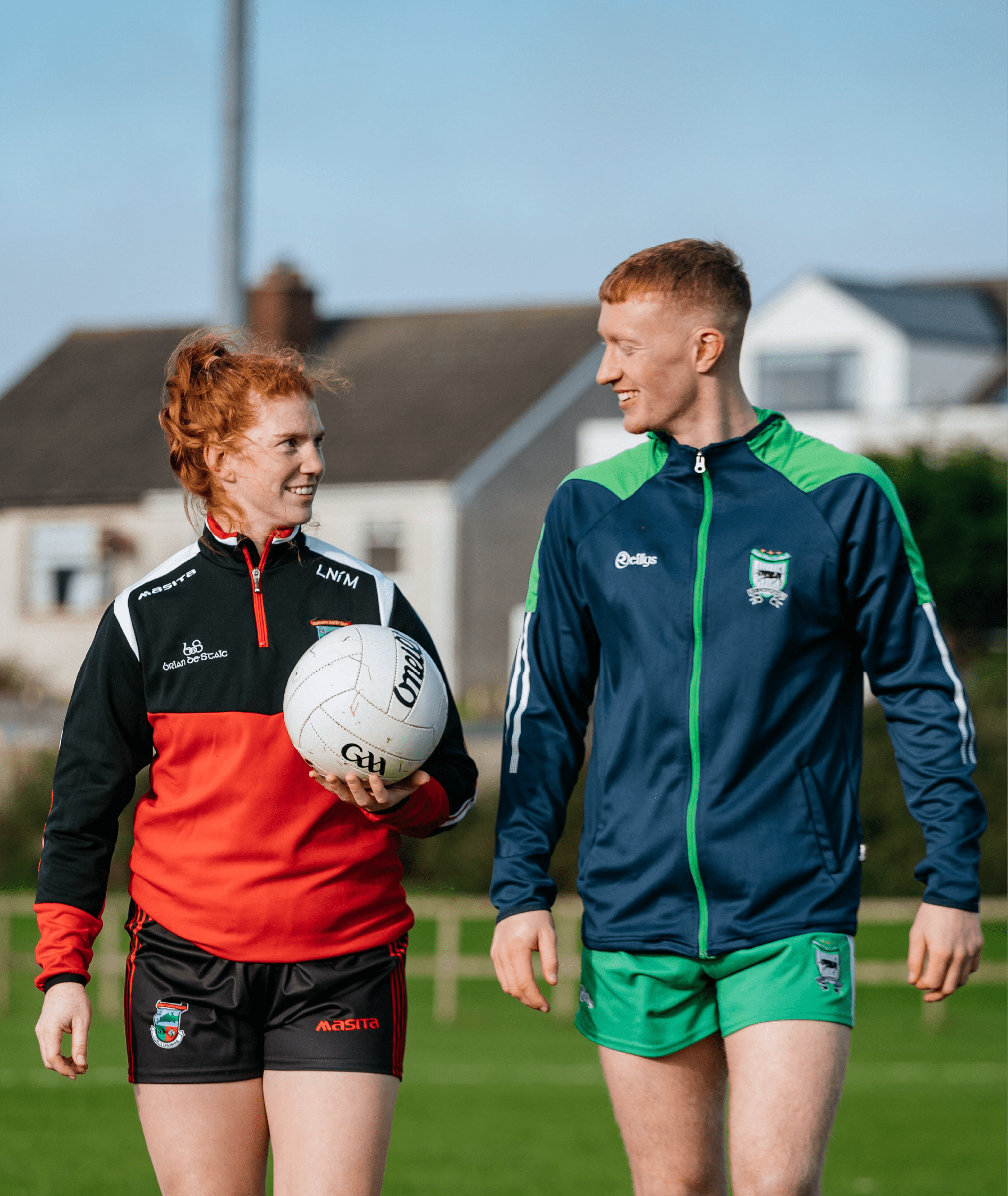
The poll also reveals the impact of harassment and the threat of violence on women and girls’ participation in exercise and sport. We used a nationally representative sample to gauge the public’s personal experience of sex-based violence, harassment and intimidation. Our research shows where violence is experienced most acutely. Of women aged 18-34;
- 77% experience cat-calling in the street. They are twice as likely, than men, to recognise cat-calling as sexual harm.
- 70% experience unwanted sexual attention,
- 31% report being stalked or followed.
In addition to general sexualised violence, we also measure the prevalence of violence while exercising or playing sport.;
- 4-in-10 women aged 18-34 experience sexual harassment exercising or in sport.
- 4-in-10 women who experienced sexual harassment in sport say it happens on an occasional or frequent basis
- 80% women who experienced sexual harassment in sport say it has a negative impact.
The percentage of men experiencing violence is negligible compared to the percentage of women. The prevalence of sex-based violence, threat of violence and intimidation has a significant impact on women’s lives, their freedom and their choices. Despite sexual harassment, violence and the threat of violence posing a very real barrier to women’s participation and performance in sport, our research records women’s determination not to be deterred. This new data underpins the relevance of everyday gender-based violence to all sporting organisations.
In October 2024 Saoirse Ronan highlighted the constant safety concerns women face during an appearance on The Graham Norton Show. During a discussion about self-defense with co-guests Eddie Redmayne, Paul Mescal, and Denzel Washington, Redmayne mentioned learning to use a phone as a weapon for a role. Mescal and Graham Norton joked about it, but Ronan interjected by pointing out that women are always having to think about their safety, turning the lighthearted moment into a serious discussion on gender-based violence.
Our research referenced this contemporary moment by asking participants to outline the strategies they employ while training and exercising. We found 45% of women who exercise regularly take precautions. These strategies could be categorised into three groups; improvised defensive weapons, risk aware route-planning, not going out unaccompanied. Sample verbatims include:
‘I always think about what I could use as a weapon. I try not to wear anything provocative which is crazy.’
‘I always stick to fully lit areas where there are plenty of people around both in the dark and daylight and where I would never be alone. I would remove headphones if I felt unsafe and I always bring my dog or another person with me.’
‘I always drive to the gym or to where I’m going so I have my car if I need to get out of a situation. I always carry my phone as well so I feel like I can call for help if I need it. I also don’t dress in tight or revealing gym clothes, I know that people who have been sexually assaulted shouldn’t feel like it was because of what they were wearing but it’s hard to not blame myself.’
‘I always bring a buddy, always have my location on my family and friends and let everyone know what I’m wearing before I leave and sometimes would have a friend or two on a call while I’m out.’
‘When I go walking by myself I bring my dog. I usually ring someone while I’m walking as I walk alone down the canal and every so often I send my husband a photo so he would know my last location. I also text to saying I’m going on a walk and text again when I’m back home.
The level and nature of self-imposed restrictions that women subject themselves to would shock many men. Building on this, we plan further research to ascertain if sharing insights into women’s experience will motivate more men to challenge male violence.
The research demonstrated the level of public understanding and support for a sport-based anti-violence project. It also recorded the impact of violence on women’s participation and performance in sport. It revealed the level of caution or discomfort that individuals feel when faced with violence against women. This resulted in our campaign strategy to engage the willing public, to build a sense of solidarity, confidence and consensus that intervening is not just ‘the right thing to do’ but is also easier than you might feel. Through video interviews with Gaelic games players, volunteers and supporters, we would develop the concept of the teamplayer ‘bystander’s bystander’. This is the person who will stand up for the person who is standing up to violence so they never feel alone or vulnerable. So they know everyone is on their side.
Design
Through an in-depth process involving focus groups with Gaelic Games players, officials and volunteers we developed this core messaging for the campaign. We used the language of Gaelic Games to engage our audiences through the title Game Changer and a graphic design system based on the lines of GAA pitch. The campaign was brought to life through video content and photography featuring real football, hurling and camogie players around the country, as well as managers and other club members. These interviews were shot in local clubs in Dublin, Donegal and Wicklow. We worked with four leading county player-ambassadors from Gaelic Games as spokespeople. Video and digital content included a mix of scripted copy and real testimony from interviews. Oisín Gallen, who scored a goal in Donegal’s semi-final defeat of Meath is one of the ‘Game Changer’ ambassadors:
‘There’s incredible encouragement in the GAA on the pitch to back up your teammate and to leave no man behind, that should be the same when you’re calling out gender-based violence.’
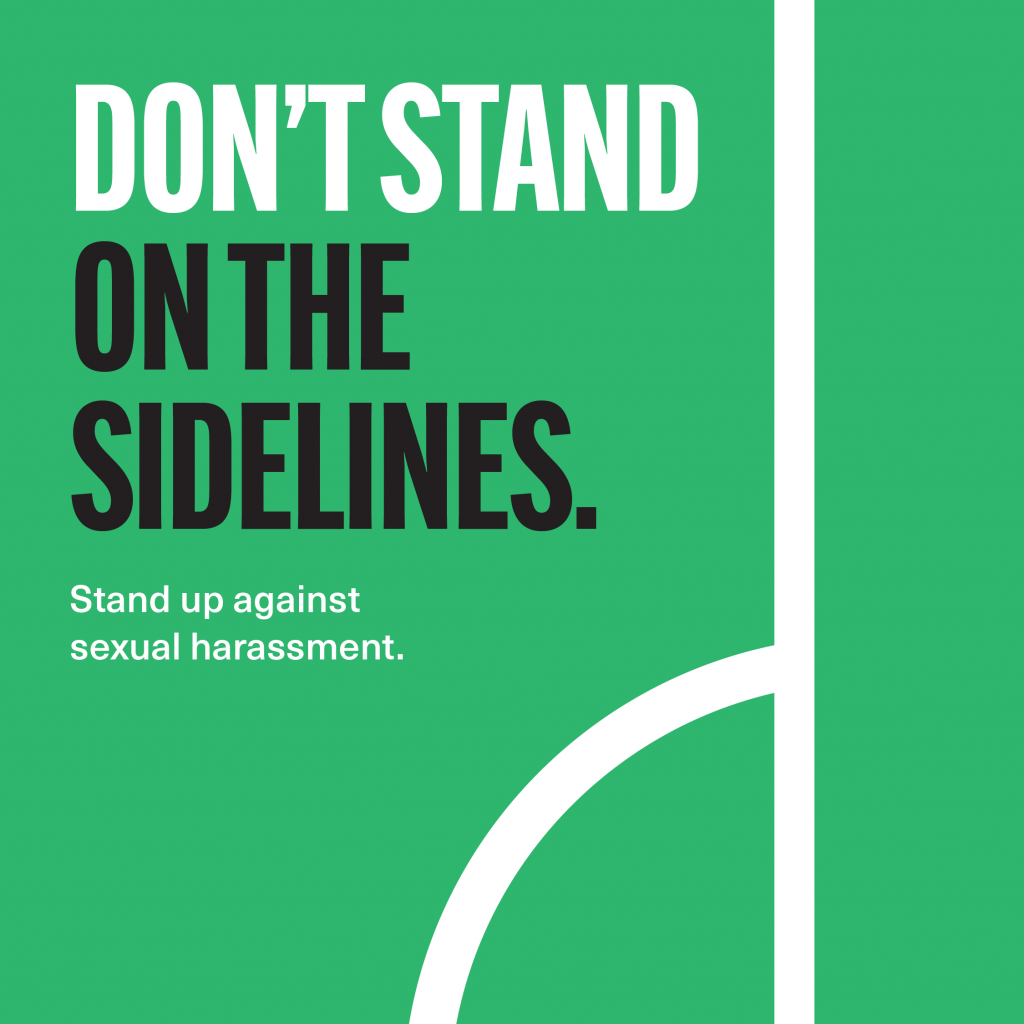
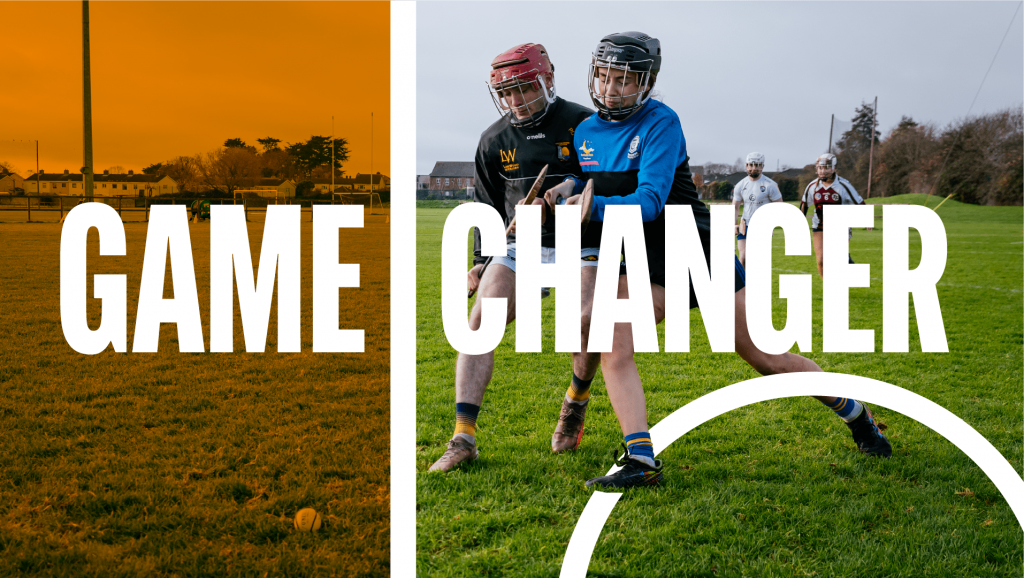
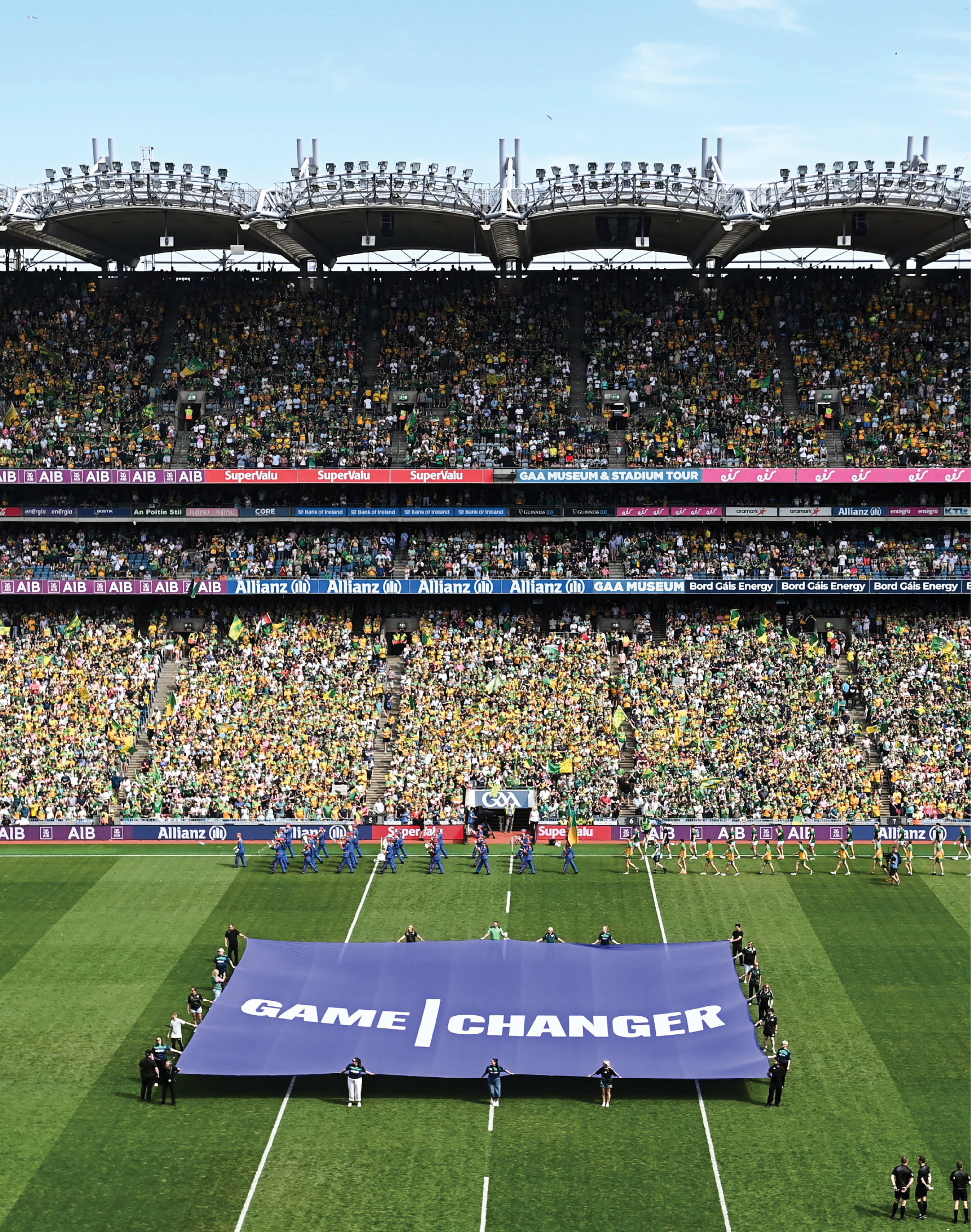
Launch
Game Changer was launched on 25 November, 2024 at Croke Park, marking the first day of the annual 16 Days of Activism Against Gender-based Violence. The campaign was supported with video (playing at select GAA matches) and social media content. This organic roll-out was amplified by printed bottles, badges and jerseys to create visibility of the project and its vision through local clubs.
A public campaigning phase was launched on 13 July 2025 at the football semi-final. In a pitchside interview at half-time, the brother of Jennifer Poole, who was murdered by her partner in 2021, told a packed Croke Park that society needs to do more to tackle to domestic, sexual and gender-based violence:
‘We as a society need to look at how we approach gender and sexual based violence in the future, and to see the GAA taking such a stand in this moving forward is an absolutely amazing experience’
Before throw-in Ruhama volunteers were joined by members of Erin’s Isle GAA club in Finglas, the Poole family’s home club, in carrying a massive ‘Game Changer’ banner onto the pitch. In September 2025 a suite of Healthy Clubs e-learning modules was launched to support the objectives of Game Changer within GAA.
